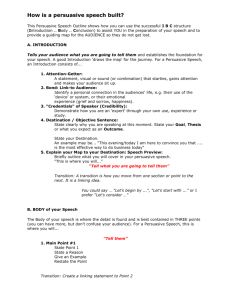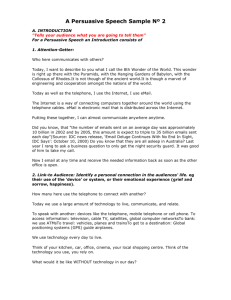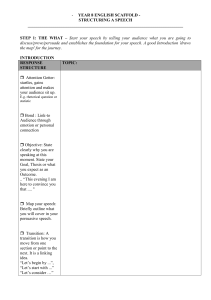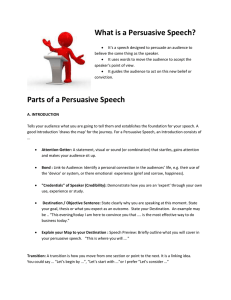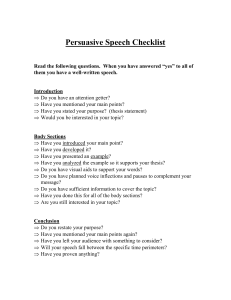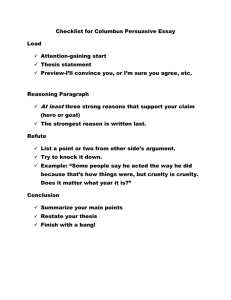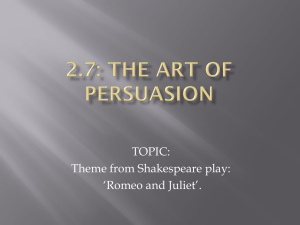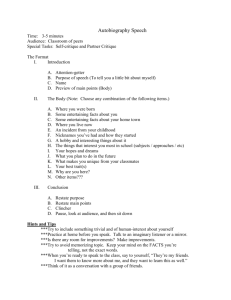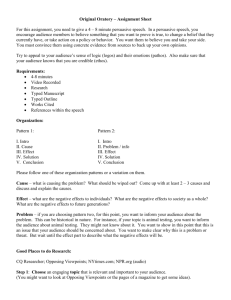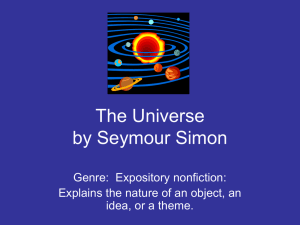Persuasive Speech Outline: Structure & Tips
advertisement
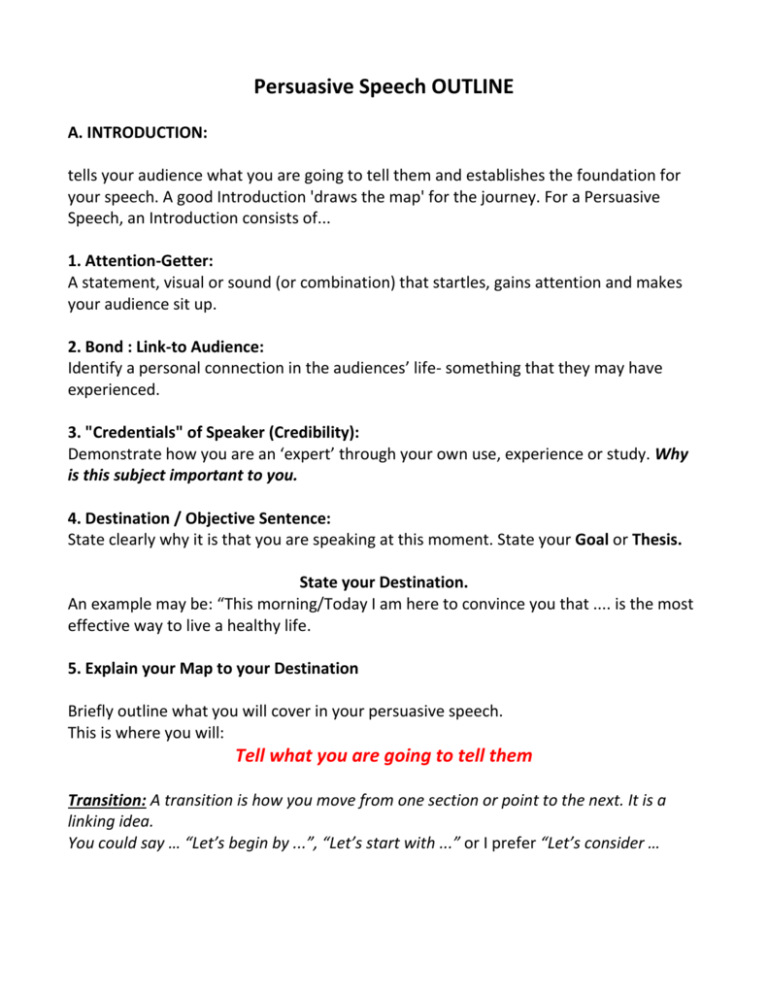
Persuasive Speech OUTLINE A. INTRODUCTION: tells your audience what you are going to tell them and establishes the foundation for your speech. A good Introduction 'draws the map' for the journey. For a Persuasive Speech, an Introduction consists of... 1. Attention-Getter: A statement, visual or sound (or combination) that startles, gains attention and makes your audience sit up. 2. Bond : Link-to Audience: Identify a personal connection in the audiences’ life- something that they may have experienced. 3. "Credentials" of Speaker (Credibility): Demonstrate how you are an ‘expert’ through your own use, experience or study. Why is this subject important to you. 4. Destination / Objective Sentence: State clearly why it is that you are speaking at this moment. State your Goal or Thesis. State your Destination. An example may be: “This morning/Today I am here to convince you that .... is the most effective way to live a healthy life. 5. Explain your Map to your Destination Briefly outline what you will cover in your persuasive speech. This is where you will: Tell what you are going to tell them Transition: A transition is how you move from one section or point to the next. It is a linking idea. You could say … “Let’s begin by ...”, “Let’s start with ...” or I prefer “Let’s consider … BODY OF YOUR SPEECH The Body of your speech is where the detail is found. For a Persuasive Speech, this is where you will: Tell them 1. Main Point #1 State Point 1 State a Reason Give an Example Restate the Point Transition: Create a linking statement to Point 2 2. Main Point #2 State Point 2 State a Reason Give an Example Restate the Point Transition: Create a linking statement to Point 3 3. Main Point #3 State Point 3 State a Reason Give an Example Restate the Point 4. Etcetera: More Body Paragraphs as needed More Body Paragraphs may be necessary Use the format above. Transition: Create a linking statement to the Conclusion, eg “Let’s summarize ..." or “Let me review these main points ..." C. CONCLUSION Tell them what you have told them 1. Restate thesis: 2. Restate main points: 3. Call-to-Action: eg “I encourage you to …”, “Let’s all contribute …” , etc.
